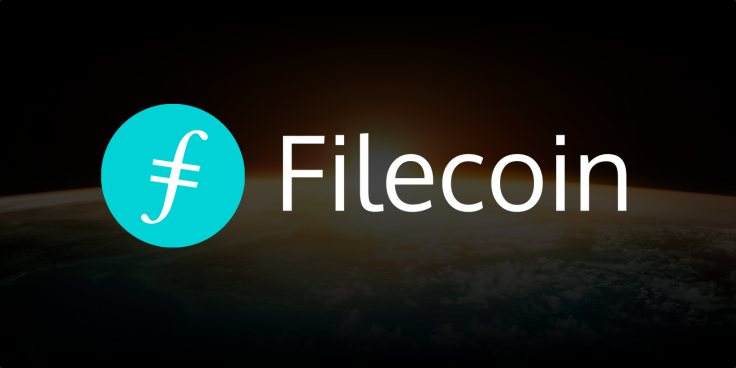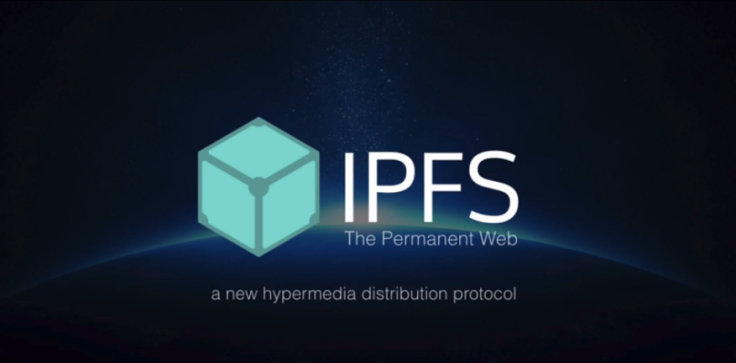Juan Benet of IPFS talks about Filecoin
IPFS is ready to add a blockchain-based currency layer called Filecoin to incentivise data storage on the network.

Since it first appeared, the distributed file system IPFS (InterPlanetary File System) has generated a ton of interest and momentum. A year-and-a-half later, IPFS creator Juan Benet is ready to add a blockchain-based currency layer called Filecoin (a coin sale is coming) to incentivise data storage on the IPFS network.
The goal of IPFS is to add decentralised permanence to data on the web, and to take advantage of many efficiencies lost via the de facto file retrieval system, HTTP, making the latter work more like a peer-to-peer system. The mechanics of IPFS can be illustrated with an analogy. Imagine if people actually said: "Hey, I just finished this amazing book, you have to read it too - it's at the NYC public library, section nine, bookcase three, top shelf, first from the left." This is ridiculous. In the real world you would just tell someone the title of the book and they would get it at the nearest convenient place, which is what IPFS does with data.
Being able to ask to be connected to whoever is closest that can provide a particular file is a much more resilient and useful way to propagate content on the network. If a file has been retrieved by your browser, why can't you simply move it from your computer to your phone for example?
One would think this is simple, but today, most content moves first to the cloud, and only after to your other devices, which makes it very inefficient, reliant on centralised third parties, and impossible to do when offline.
Instead, we should switch our internet architecture so that content flows naturally from computer to computer, as efficiently and robustly as possible, without depending on services or connectivity that may not be available. In fact it turns out to be difficult switch to make because so many assumptions are baked into all software about how this is done.
Benet told IBTimes: "We are trying to move digital information to behave like that, such that you can identify content natively and fetch it. This means addressing it all by the cryptographic hash of the content. That way you can get all these nice properties like immutability; you can hand out people's addresses that cannot change, they can only be served the same thing, so that just improves the security and resilience of the network dramatically."
The next stage in the process is providing incentives for storage. Filecoin is a distributed electronic currency similar to Bitcoin, but unlike Bitcoin's computation-only proof-of-work, Filecoin's proof-of-work function includes a proof-of-retrievability component, which requires nodes to prove they store a particular file (see the Filecoin whitepaper for detail on how this is more useful than proof-of-work). Nodes are incentivised to store as much of the entire network's data as they can and the currency is awarded for storing files, and is transferred in transactions, and can ultimately be exchanged for other currencies.
Using cryptocurrencies to incentivise file storage in a decentralised manner is a space that's maturing fast. For instance, Ethereum's Swarm is now connecting with Mist, the light client browser/wallet; meanwhile MaidSafe is busy raising capital to build out its SAFE network.
But about a year ago there wasn't really a market for distributed storage with cryptocurrencies. Achieving the same kind of resilience as something like Amazon S3 is extremely difficult and requires a massive network to be able serve things, notes Benet. This is changing with the charge of distributed web applications coming out of the blockchain or IPFS, which were still pretty young last year.
Regarding the timing of Filecoin, Benet said: "At the beginning we were planning to build just enough of IPFS to launch Filecoin, but then many developers joined the project and we had huge momentum of adoption, with lots of people contributing code, and that just took up a lot of our time.
"Also, we wanted to add a layer of contracts to Filecoin and the work around contracts wasn't quite there yet. Ethereum had come out but it was still early, and hadn't been battle-tested. So we decided to just wait it out a bit until Ethereum and things like it would mature and we could see how they behaved in the wild."
Benet says he feels comfortable jumping into that now. "We can create certain kinds of sophisticated contracts to be able to ask the network to store your data, but perhaps you only want to pay certain nodes with certain reputation, meaning nodes that have successfully stored stuff before."

The Filecoin sale, when it's ready to happen, will generate intense interest within the cryptocurrency community and beyond. Benet said: "We already have a lot of people who are extremely interested in this and plan to buy lots of Filecoin in the sale and are very excited about the project."
Benet said the point of the sale is to secure funding for people to develop the entire network over time, and build important software utilities and services to assist users. The aim is also to put a lot of that currency into circulation quickly because then people can start using it to store files, and to create a very strong incentive for the miners of this currency to store the data.
"The purpose of the Filecoin currency is to create a fungible token that can be spent to hire the miner network to store files. The first and foremost use of the currency is precisely this: locking it up as a reward to miners who successfully store data on the network. The currency can have other uses too, for example using it as collateral for data storage contracts, or for different international entities to pool resources in order to back up critically important data.
"We have big plans to store major infrastructure data on the Filecoin network, things like Wikipedia, Open Access scientific journals, large datasets, government records, and more. Other entities we've been speaking to are very excited to store their massive datasets – some public, some private – in the Filecoin network, to ensure the data is stored and served resiliently, and cheaply."
Benet agreed nascent networks and their app coins can generate a lot of speculation, something he views in purely practical terms. "Speculation actually helps kick-start a lot of the network; it helps people move into and out of that network and it helps give some of those miners liquidity.
"Miners that work really hard for a long time storing all this data may want to be able to exchange that for bitcoin or ether, and they need some liquidity. That means there needs to be a market in place for them and speculation actually helps a lot with that. This is a good opportunity for market makers, too."
© Copyright IBTimes 2025. All rights reserved.






















